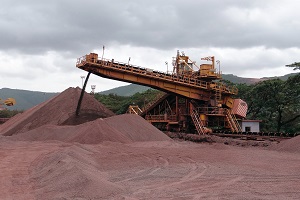Leveraging integrated energy, mineral and groundwater resource management using UNFC

Resource development and production are often seen as a “drain industry” that leaves behind wastes and a broken planet, along with socio-economic concerns such as exposing a resource-dependent national economy to resource depletion, and other risks such as the so-called “Dutch disease” and vagaries of market volatilities. The activities also have the potential to cause negative impacts on the groundwater resources. In response to these challenges, the Sustainable Development Goals (SDGs), summarized as “People, Planet, Prosperity”, have called for “integrated and indivisible” management and development of all aspects of society and the planet. The United Nations Framework Classification for Resources (UNFC) has embraced this overarching vision and is being transformed as the toolkit for sustainable management of all resources, the United Nations Resource Management System (UNRMS).
In this context, assessments of energy, mineral and groundwater resources based on UNFC can make an important contribution to achieving the SDGs. The assessment of energy, mineral and groundwater resources using the UNFC-UNRMS framework and utilizing the data and information for policy formulation and strategic decision-making will be especially important. The same inputs could also be the basis for national resource inventory management, company business process innovation and efficient capital allocation so that benefits will accrue to all stakeholders with an associated increase in shared prosperity. The UN System of Environment-Economic Accounting (SEEA), which is being adopted by all countries, uses UNFC for proper national resource assessment.
In the training workshop on “Application of UNFC for sustainable resources management” organized as part of the “Ninth International Forum on Energy of Sustainable Development”, 12-15 November, Kyiv, Ukraine, participants from several South-East Europe and Central Asian Countries discussed how new approaches to total resource management could be done using UNFC.
Participants from Bosnia and Herzegovina, Kazakhstan, Kyrgyzstan, Serbia, Ukraine and Uzbekistan shared the status of energy, mineral and groundwater resource inventories in their countries, and the potential for new discoveries. These countries clearly have a large amount of useful data on mineral, energy and groundwater resource statistics, but the data are not readily accessible due being scattered across various agencies. Several different classification systems are currently used in these countries to define mineral, energy and groundwater resources so the use of UNFC-UNRMS to establish a harmonized information-base will be able to assist in sustainable development efforts.
“The range of data available on energy and mineral resources in many countries is impressive”, said Robert Smith, Midsummer Analytics, Canada. “At the same time, more work is needed to improve the quality of the data, especially regarding accessibility, and their coherence with UNFC.”
While groundwater resources have been assessed on the same level as other resources in some countries, such as Ukraine which uses a UNFC-based system, integrated reporting of all resources has not become mainstream in most countries. To facilitate this integration in the future, the UNFC-UNRMS will provide additional specifications and guidelines.
“Because UNFC-UNRMS is now directly aligned to the purpose of delivering the SDGs there has been a remarkable acceleration in its adoption and use worldwide”, observed Julian Hilton, Aleff Group, United Kingdom. “With this new momentum has come a new, but very welcome demand, for training in how to use it and how to participate in its development.”
“A bold and transformative engagement for climate action, including conserving groundwater resources, requires major stakeholders, governments, industry and academia to express their common purpose by adopting a common system for mapping and measuring progress across the whole resource management spectrum”, said Scott Foster, Director, Sustainable Energy Division, UNECE. “The fact that existing national systems can be bridged readily to UNFC means there are no real obstacles to adopting and implementing the new toolkit.”
This training workshop was organized under the framework of the United Nations Development Account (UNDA) project “Integrated energy and water resource management in support of sustainable development in South-East Europe and Central Asia”.
For more information on UNFC visit: https://www.unece.org/energy/se/reserves.html



